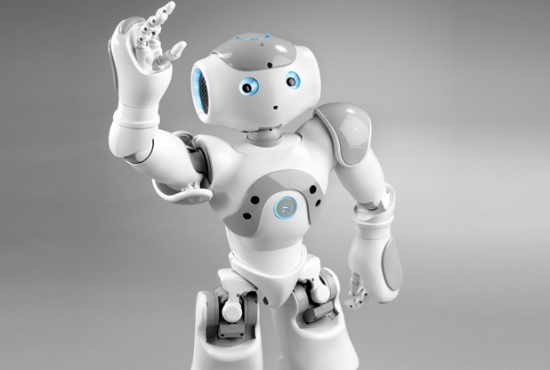It’s been the stuff of science fiction for decades. But as we inch closer to a world of self-driving cars and intelligent machines, should we be worried about losing our jobs to robots?
It’s hard to imagine a line of robots greeting clients behind a business centre reception desk. But it’s a distinct possibility, as one hotel in Japan is proving.
Newly opened in July 2015, the Henn-na Hotel in Sasebo has a reception desk staffed by robots. Some, although not all, can speak multiple languages, greet guests, carry bags and even clean rooms.
It seems astonishing to think that hotels could be staffed by robots – and perhaps business centres will follow suit one day, too.
Digging deeper, this fascinating guide from NPR shows which jobs are considered replaceable by robots within the next 20 years. According to the study, bookkeepers have a 97.6% chance of being automated, while social workers are least likely to lose out with just 0.3% risk.
The study highlights legal secretaries as ‘at risk’, with a 97.6% chance of being replaced by automated methods. One reason is because some secretarial duties are now undertaken by bosses themselves – such as taking calls and arranging meetings.
This could be seen as natural development in terms of business management and access to technology. Bosses organising their own meetings is made even easier today given the growing online availability of flexible workspace and on-demand meeting rooms. They can book meeting rooms at the click of a button, without the need for secretarial intervention – so in many ways, the flexible workspace industry is also influencing this change.
Indeed, automation is now big business. From automating client requests and bookings to bigger ambitions like self-driving cars, it’s becoming a very real scenario in our on-demand digital age.
essensys is one technology operator keen to make the move to more efficient automation. As CEO Mark Furness revealed in an interview with Officing Today, their technology – JEFF – has the potential to automate a vast array of clients’ requirements, many of which they haven’t even requested yet.
“Looking ahead, it gives us exciting new prospects,” said Mark. “Imagine a world where clients walk into a business centre and their workspace is tuned to their needs – blinds drawn, heating on, coffee brewing. JEFF could control all of that.”
Of course that’s not to say the company endorses robotic receptionists. But this scenario of a smarter, more comfortable and ultimately more productive workplace shows us that automation – and robots – should not necessarily be seen as a threat.
For instance, at last year’s TEC conference we were introduced to NAO, a 53cm humanoid robot capable of fluid movement and emotive responses. Robots like NAO are now used in schools for youngsters with autism, because they can trigger communicative reactions from autistic children that humans alone can’t achieve.
Should we be worried about losing jobs to robots? Possibly, if hotel customers react favourably to those robo-ceptionists. But then there’s NAO, who teaches us that collaborating with technology is greater than working against it. Ultimately technology is an enabler – and for every NAO, and every robotic receptionist, there’s a growing network of salaried people, jobs and skilled resources behind it creating niche markets and new ideas. Surely that’s where our future lies?


 Dr. Gleb Tsipursky – The Office Whisperer
Dr. Gleb Tsipursky – The Office Whisperer Nirit Cohen – WorkFutures
Nirit Cohen – WorkFutures Angela Howard – Culture Expert
Angela Howard – Culture Expert Drew Jones – Design & Innovation
Drew Jones – Design & Innovation Jonathan Price – CRE & Flex Expert
Jonathan Price – CRE & Flex Expert












